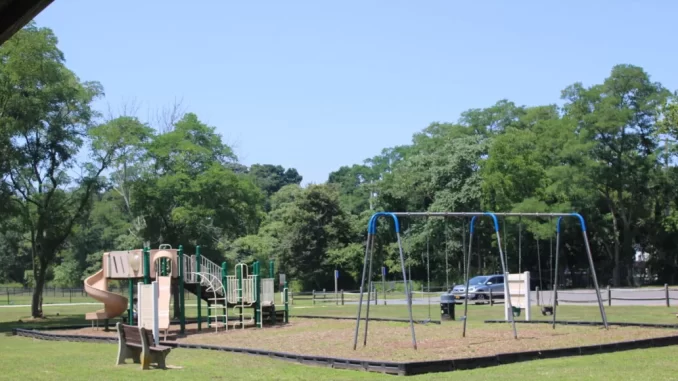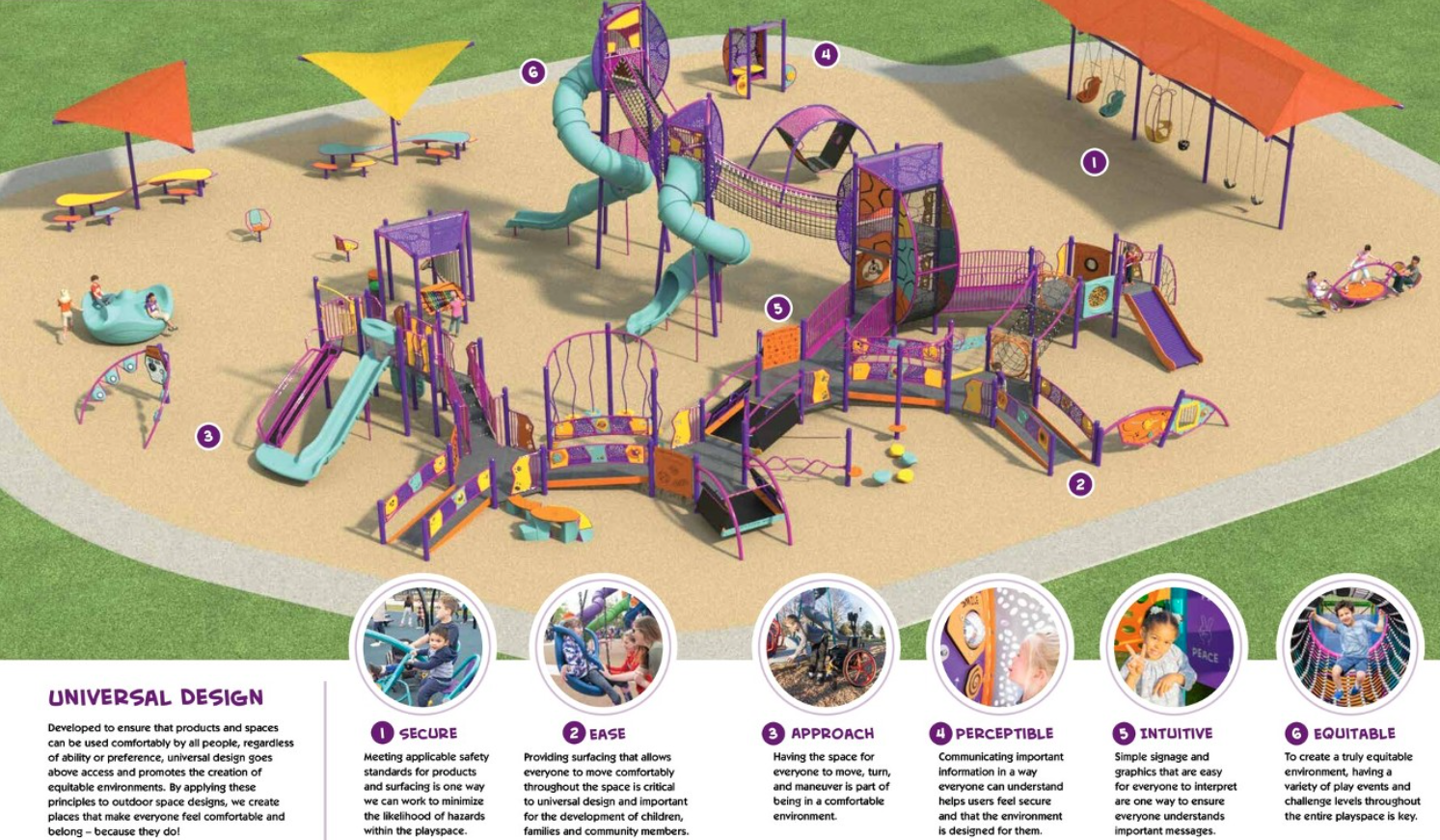
Gardiner County Park in West Bay Shore is set to be the first Suffolk County Park to receive Americans with Disabilities Act (ADA)-accessible renovations and updates to its playground.
Legislator Steve Flotteron (R-Brightwaters) was made aware that the playground was in poor condition and put in a request for funds from the Capital Budget. With about $300,000 on the table for Gardiner Park, the Suffolk County Parks Department and Legislator Flotteron have communicated with American Recreational Products (ARP), a representative of BCI Burke. Burke, which operates out of Fond du Lac, Wisconsin, specializes in inclusive playgrounds and is a consultant, manufacturer, and distributor of playground equipment.
Legislator Flotteron assembled a steering committee of teachers, parents, County officials, and community stakeholders to hold the first meeting for input on what features the park should carry. The first meeting was held on Tuesday morning at the Gardiner Park pavilion, yards away from the outdated playground.
ARP has consulted and designed parks with community input at multiple schools in the area, including Sherwood Elementary in Islip, Center Moriches Union Free School District, the Eastport Sports Complex, the Sweezy House in Yaphank, the Bay Avenue Playground in Patchogue, and Tuttle Avenue School in Eastport.
Based in Suffolk County, American Recreational Products is a second-generation family-owned business with over twenty-five years in the industry.
BCI Burke prides itself on “high-quality, innovative, and durable commercial playground equipment for all communities,” as per their website. But they stipulate that their commitment goes “beyond creating playgrounds,” in that they “create play experiences that foster imagination and help shape a world where everyone can be part of an inclusive play community.”
Legislator Flotteron, Program Examiner of the Suffolk County Parks Department Kellyanne Sullivan, and a representative for ARP were joined by local parents, members of the local YMCA, the Sons of Italy, and even a Bay Shore School District gym teacher were present at Tuesday’s meeting to discuss what play patterns they see in children, but how playgrounds can be transformed to include children with physical handicaps, developmental disorders, and other special needs.
Since about half of the money from the Capital Budget will go to installation, selecting the most economic aspects of the playground, but also those that will withstand the elements, is a crucial starting point.
ARP recommends a recent product in interlocking rubber tiles, which are durable and can easily be repaired. This is a more desirable alternative, and steering committee members agreed, to pour-in-place rubber, which erodes quickly, and loose dirt or soil, which requires repetitive maintenance and inevitably leads to messes in the homes once children return from the playground.
ARP provided catalogs for members to peruse, showcasing hundreds of different items and amenities.

One member discussed how children on the autism spectrum might be more inclined to play solitarily and that they might be engaged by sounds and musical play panels than they might be swings or slides. ARP showcased dozens of play panels that can easily be interchanged with different panels throughout the year. Panels include interactive musical stations, piston tracks, educational displays, such as those that contain math equations and weather displays, as well as those depicting buildings or vehicles for imaginary play.
One committee member said that even neurotypical children are drawn towards play features aimed towards special needs children, prompting a need for more solitary areas of play away from the action, noise, and other facets of the environment that might be overstimulating for some kids.
ARP also showed off a patent-pending design for their inclusive slide, a 360-loop. The slide drops children off on a raised platform that turns to the right or left to meet a ramp. Children can climb the ramp however they please, either using upper-body strength on the side rails or their legs to get right back on the slide. The continuous transfer between the slide and the ramp is meant to give children multiple options for tactility, exercise, and independence, and, of course, play to their hearts’ content.
ARP also discussed height restrictions for the equipment, stating that a critical fall height is proportional to the age range of kids for whom the playground is intended. A fall height of anything exceeding six feet, for example, would become enclosed and open to children ages five to twelve.
The colors of the equipment are also completely customizable, with ARP offering several palettes to match the natural environment, induce certain types of creativity and energy in children, and have certain calming effects on users.
“Color impacts our mood, stimulates our mind, and influences how we experience the world around us,” Burke’s catalog reads. The natural color palettes contain “earth tone” colors that can create a “calm, modern” feeling in the playspace. The bright color palette “stimulates senses, creates a sense of happiness, and keeps children engaged. The calm color palette, consisting mostly of purples and blues, “can be beneficial in a playspace for children with special needs or sensitivities who need a place to escape to.” The modern combination palette can “convey freshness and be calm, bright, or natural.” A modern palette can help a playground blend into surrounding architecture and bring an entire public space together.
The objective of this committee meeting was to garner public input from stakeholders with experience not only with neurotypical children, but those with special needs who would require ADA-compliant amenities and fixtures, as well as those that promote play and creativity for all children. Committee members stated that there must be fixtures at the park for a wide range of children, as families might have a special needs child to whom an inclusive park might cater, but leave a neurotypical child uninterested.
Inclusivity, safety, and a general community space are all tenets of what the steering committee is seeking in this project. ARP will take the input from the meeting and work with the firm to create a draft plan within the budget from the County. From there, further deliberations and amendments will continue before ground is broken and the equipment is installed.

